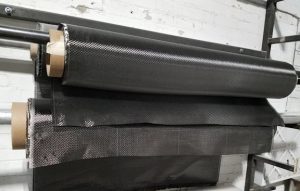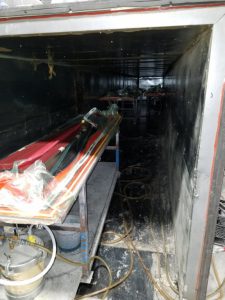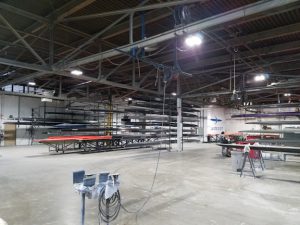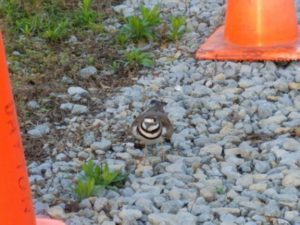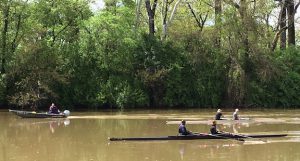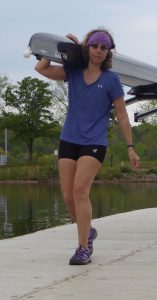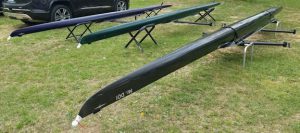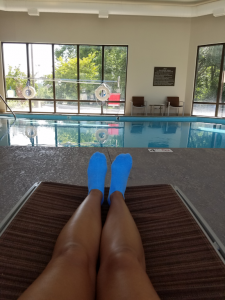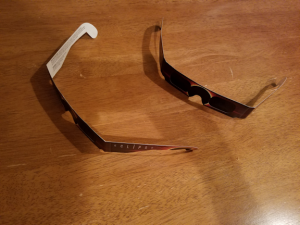Last week the rowing club was more adventurous than usual, traveling to a large regatta in Florida. My husband and I stayed with another club member at his mother’s house not far from the race course. She is a delightful English lady who loves to have guests and is very outspoken, making blunt remarks such as “Absolute rubbish!” when, for instance, my husband suggested that we might take our clothes to a laundromat rather than inconvenience her by using her washer and dryer.
She is 86 years old and very active, going sailing once a week and doing charitable work regularly. When the heat got to me on the practice day before the races started, she sympathized with me by saying that she recently had gotten rather dehydrated playing tennis for two hours on a hot day.
That evening I still didn’t feel quite right after rowing and being outdoors for a long time in the heat. When I got in bed, I felt as if it might be rocking gently, like a boat. That reminded me of reading Kon-Tiki as a child and pretending that my bed was a balsa-wood raft floating across the Pacific Ocean. So, as I couldn’t get to sleep right away, I decided to populate this imaginary scenario with my adventurous future self, Fannie. I pictured us looking up at the stars from a natural-fiber mat on the raft, with plenty of comfortable pillows.

(Creative Commons image via flickr)
“So, Fannie,” I asked her, in my best faux-English accent, “would you say that the stories our culture tells about aging are absolute rubbish?”
“No, I wouldn’t actually,” she said, drawing out the vowel into an absurdly long ‘ah’ sound, “and by the way, you are rubbish with ah-ccents, and I never got much better with them over the years. So we might do better to stick with ordinary American conversation, though there’s nobody around but a few imaginary flying fish to hear us embarrassing ourselves.”
Fannie snuggled deeper into the pillows and went on to say, “Putting energy into rejecting a cultural narrative only feeds it more power. What we resist persists; that’s from Carl Jung, a very wise man. When you feel that society has you in a box, there’s no need to kick and beat on the walls. Just look up, and you’ll see the sky and feel a breeze flowing through. The box is not solid. All you have to do is step out of it. Dance and skip out of it. Do handsprings and cartwheels out of it. Oh, was there a box around here somewhere? I hadn’t noticed. Where it went, I can’t say. Maybe it’s in that field over there, behind all those tall weeds.”
“Once upon a time, long, long ago,” I said, getting into the spirit of it, “there were people who thought they had to stay in boxes; or at least, that’s what my great-grandmother told me.”
“Lost in the mists of time,” Fannie agreed cheerfully. “And while we’re on the subject, maybe instead of picturing the archetypal Crone just sitting and telling stories, you might want to invite her to play some tennis. Yes, I know you are rubbish at tennis, but the Crone hasn’t played in many years either. Of course, I’m no better at it, since I am you, so that’s nothing personal.”
I thought that I heard Fannie chuckling quietly to herself, but a fish leaped out of the ocean just then and landed with a particularly loud splash, so I couldn’t be quite sure.


